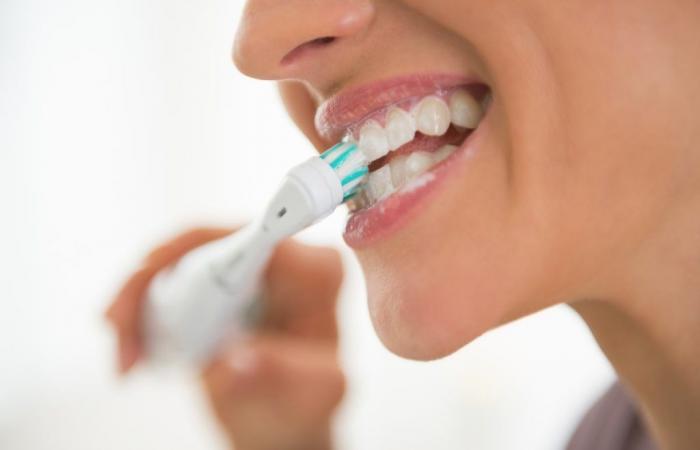Viral videos on TikTok have challenged the way many people brush their hair teeth. His advice: brush your teeth with a toothpaste that contains fluoride and spit it out – but don’t rinse it.
Dental experts agree. They recommend brushing your teeth at least twice a day with a toothpaste that contains fluoride to help prevent cavities. And they say skipping rinsing after brushing allows fluoride to remain on your teeth, providing additional protection. Those who prefer to rinse should do a light rinse with a small amount of water, such as sipping from their hand, or delay rinsing for about 20 minutes, says Brittany Seymour, spokeswoman for the American Dental Association (ADA) and associate professor at Harvard School of Dental Medicine.
A 1999 study of more than 2,800 15- and 16-year-olds in the United Kingdom found that those who rinsed with a glass of water after brushing had, on average, almost four decayed, missing or filled teeth, compared with about three for those that did not rinse at all. Those who rinsed with less water had about 3.62 bad teeth.
Skipping rinsing is not essential for people with healthy teeth, but those who consume a high-sugar diet or are prone to cavities may need to. extra help from fluoride, evaluates Margherita Fontana, professor at the University of Michigan School of Dentistry. “When you rinse, you’re basically washing away the active ingredients in the toothpaste you just applied to your teeth,” she says.
Another option for those who want to rinse after brushing is to use a mouthwash that contains fluoride, says Fontana. Dental plaque is covered in certain acid-producing bacteria that, with the help of a high-sugar diet and poor oral hygiene, can cause cavities. Fluoride, a mineral, helps prevent cavities, protecting teeth – mainly by helping to replace minerals that have been lost from protective enamel and reducing the amount of minerals that enamel loses.
Although fluoride is essential for protecting teeth, excessive intake can increase the risk of toxicity. Excessive fluoride intake during a prolonged period of early childhood tooth development can cause white spots on permanent teeth, a cosmetic condition called fluorosis.
Dental experts say the amount of fluoride that remains on your teeth after brushing is safe, although children should always be supervised when brushing to ensure they don’t ingest too much.
What else should you know
The same brushing habits are suggested for children. Toothpaste containing fluoride is recommended as soon as teeth emerge.
For children under 3 years old, caregivers should brush their teeth with a “grain of rice” sized amount of toothpaste and those 3 to 6 years old should receive no more than a pea-sized amount. according to the ADA and the American Academy of Pediatric Dentistry (AAPD).
Next, parents and caregivers should have their children spit out as much as possible to avoid ingesting it, but keep any remaining fluoride on their children’s teeth to help protect against cavities, says Scott Cashion, a pediatric dentist and president of the AAPD. . “We recommend that they spit it out, but try not to rinse it,” he says.
“When they go to sleep, if there is fluoride in those teeth, it will help protect them during the night.”
Skipping rinsing after brushing with a toothpaste that contains fluoride – either rinsing lightly or delaying rinsing – allows the fluoride to remain on the teeth, providing additional protection.
This content was translated with the help of Artificial Intelligence tools and reviewed by our editorial team. Find out more in our AI Policy.
Tags: Dentists recommend rinse mouth brushing teeth understand
--





